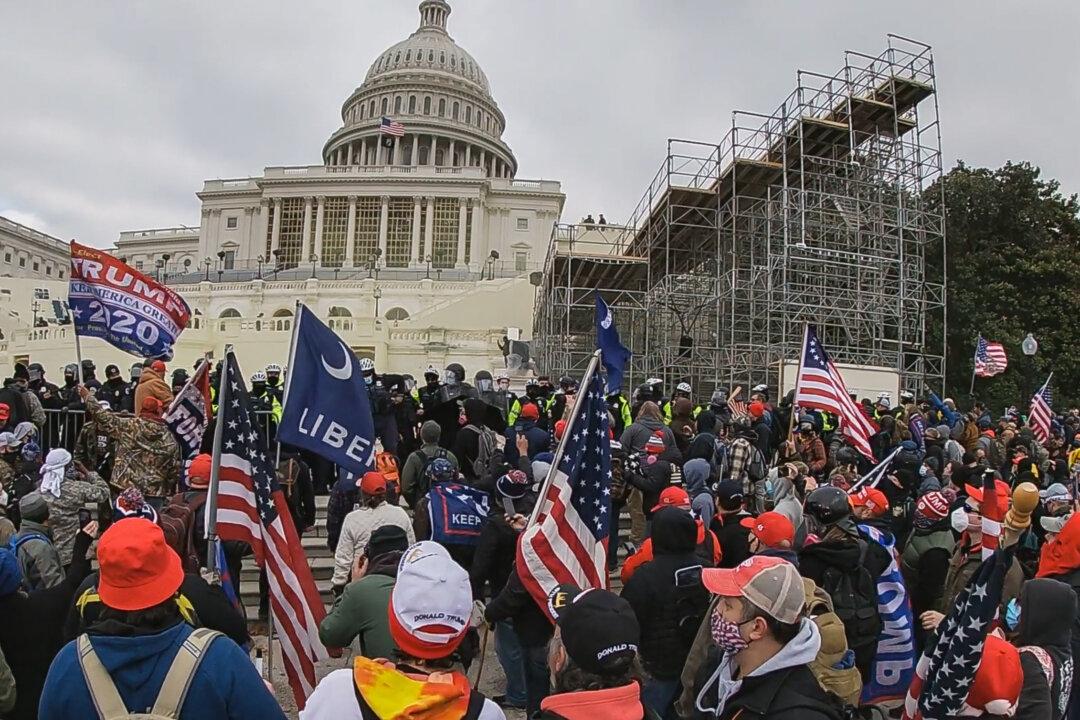Subpoenas have been drafted for six Oath Keepers convicted of Jan. 6 crimes, looking for texts, emails, or other records that could show they were coerced by prosecutors to lie in their plea deals, a new court filing said.
Defense attorneys in the Oath Keepers seditious-conspiracy trial underway in U.S. District Court in Washington D.C. asked Judge Amit Mehta to sign the subpoenas addressed to Joshua James, Jason Dolan, William Todd Wilson, Caleb Berry, Brian Ulrich, and Mark Grods.





